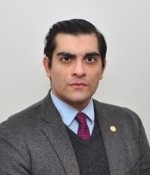FEATURED PAPER
By Prof. Dr. M.F. HARAKE
ESLI International
Graduate School of Management & Engineering
France
Abstract
Within the context of hypercompetition in a more globalized market and constant environmental changes, business entities must review their organizational model in order to ameliorate their performance. Project management practices can help organizations achieve their goals and increase the value of their actions. The purpose of this paper is to introduce the various elements that constitutes project management frameworks with the aims of improving operational practice and achieving project efficiency and effectiveness. The paper will present a useful overview to provide guidance to organizations on implementing or restructuring their own project management framework.
Key Words: Project Management; Framework; Methodology; Models; Typology.
- Introduction
A project never exists in an unframed nature as it is usually conceived and executed by a specific team, within an organization that has established a PM framework – enabling the process. Hence, a framework – whether it is deliberately designed with proper attention to details – or whether it emerged naturally based on the project dynamic, will serve as a working guide for the project team (Pace, 2019).
A framework is usually designed to suit the project needs, goals, executing team, etc. That said, today’s business entities are under pressure from the external environment in order innovate and solidify a competitive edge to meet the needs of the customers (Allen et al., 2014). That said, in order to remain competitive, organizations must adopt ‘’innovative’’ project management practices (e.g. knowledge management, skills, tools, techniques, processes, ideation, etc.) to meet the requirements and objectives of the project. This is done by implementing the appropriate processes and work methodologies (in the organization’s development strategy) that are needed to respond to the requirements and objectives of the project – thus, responding to the market needs and developing a competitive advantage.
As the number and complexity of projects in the business world has increased, the need for the review of the project dynamic (e.g. value system, responsibilities, processes, policies, etc.) that allow projects to achieve organizational objectives must be reviewed. This is done through project implementation according to a formal well-constructed project management methodology rather than ad-hoc processes with weak outcomes (e.g. lack of coordination, wasting resources, etc.).
This paper is a contribution to the existing literature on project management methodology and framework. In other words, we will try to outline the basic principles of project management methodology as well as the different framework which will enable readers and experts alike decrypt their particularities in order to see what process suits their (specific) project the most (and when to choose each model).
- Project Management Methodology & Framework
2.1 What is a Project Management Methodology?
A project management methodology can be defined as an ensemble of guiding principles that can assist managers when it comes to piloting their project (Pace, 2019). Indeed, there many project methodologies that are available – and the choice of each methodology will depend on internal conditions of the project and the external environment as well (Joslin & Müller, 2015).
More…
To read entire paper, click here
How to cite this paper: Harake, M. F. (2024). Introducing Project Management Frameworks & Methodology. PM World Journal, Vol. XIII, Issue III, March. Available online at https://pmworldlibrary.net/wp-content/uploads/2024/03/pmwj139-Mar2024-Harake-Introducing-Project-Management-Frameworks.pdf
About the Author

Prof. Dr. M. F. HARAKE
Poitiers, France
![]()
Prof. Dr. M. F. HARAKE is a management Professor based in France. He is currently the Director of International Academic Affairs of GIP CEI (a French Higher Education and Research Institution). He is also the Doctorate in Business Administration (DBA) program manager of ESLI International – Graduate School of Management & Engineering (Paris – France) and the scientific director of the MBA DELIVERWEB at ALTERNIS Business School (Bordeaux – France). He previously served as a visiting professor at ESCE International Business School (Paris – France), Paris School of Business (Paris – France), Ascencia Business School (Paris – France), ESPRIT Business School (Tunis – Tunisia), GBSB Global Business School (Barcelona – Spain), etc.
Dr. M.F. HARAKE is a research fellow and former board member of the CEREGE Research Laboratory (University of Poitiers – France), and a visiting research fellow at CABMR Research Center (Paris – France). He is also an Honorary Academic Advisor and Research Scholar at the Project Management World Library (Austin / Texas – USA). He previously served as the Director of the CREFEGE Research Center (Paris – France). His research interests include Post-Conflict Public Management, Crisis and Urgent Operations Management, Humanitarian Logistics, and Project Management in Unstable Environments.
He can be contacted at mharake@gip-cei.com









